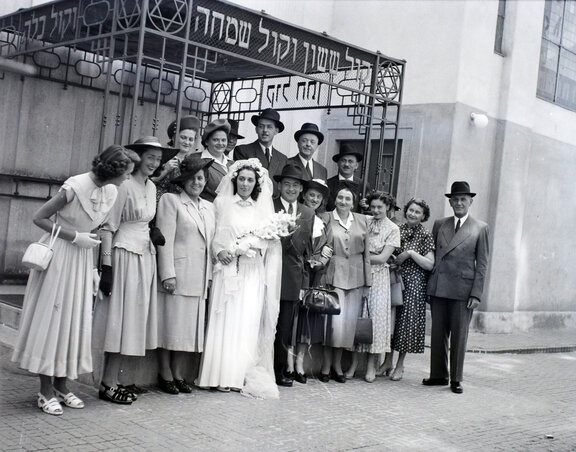Profile
History of the Jewish People
Jews lived and live in exchange and conflict with their respective environments. However, a history of the Jewish people does not look at Jews and their history from the outside in external source material, which often paints a picture distorted by anti-Judaism and anti-Semitism. Rather, a history of the Jewish people follows the Jewish perspective as expressed in internal, often Hebrew sources, including letters, autobiographies or wills, memorandum books or epitaphs, protocol books or takkanot, responses as well as codices and their commentaries. The reciprocal analysis of both groups of sources allows internal and external perspectives to communicate with each other and make them fruitful for the present.
Consequently, teaching and research are interdisciplinary, cooperation with the faculties of Heidelberg University and partners in Germany and abroad is just as much a matter of course as the consideration of cultural studies issues, be it the approaches of cultural history or gender studies, post-colonial theory discussion or memory theories.
Knowledge of the history and origins of the Jewish people opens up new horizons for understanding Jewish existence today. The range of topics taught in the History of the Jewish People is therefore very broad. Topics include the formation of Jewish jurisdiction or the understanding of the roles of men and women in and since antiquity. The development of Jewish communal autonomy in the Middle Ages made it possible for Jews to live their laws and religion within the framework of their own corporation - despite crusades, well poisoning and ritual murder charges, inquisition and expulsions. In the early modern period, Jewish existence was consolidated in the various territories and the few large cities of the Old Kingdom, the four-country synod gained far-reaching influence in Poland-Lithuania, communities were founded in the "New World", Hasidism and the Jewish Enlightenment (Haskalah) provided new impetus for future generations. In the transition to modernity, the diverse paths of Jewish emancipation in the individual states can be traced, as can the history of Zionism. The history of the Jewish people does not end with the Shoah, so that the founding of the State of Israel or the re-emergence of Jewish life in Europe are also addressed.
Across the centuries and spaces, the focus is always on the construction of Jewish identities, their self-representation and external perception, on structures and social relationships within the Jewish community and with the environment, on the significance of kinship, family, (transnational) networks, on Jewish ritual and law in the field of tension between originality and adaptation, tradition and transformation, on differentiation between popular and elite religion, rural and urban Judaism.
Local and regional differences are thus to be recognized, in Germany as well as in Spain, Italy, Poland, Israel or the USA. From this regional and local perspective, an integrating, contextualizing presentation is made that enables generalizing statements to be made. However, the aim is not homogenization; rather, the plurality of Jewish existence and culture is to be shown, Jews are to be understood as one group among others, which together constitute plural societies, so that the "general" history must always be taken into account appropriately.
In cooperation with the Ruprecht Karls University of Heidelberg (Departments of History, German Studies, European Art History, Romance Studies), the Interdisciplinary Master's Program Heidelberg Middle Ages Master is offered.
Courses on Jewish history are also offered by the IGNATZ-BUBIS-CHAIR for Religion, History and Culture of European Jewry.

